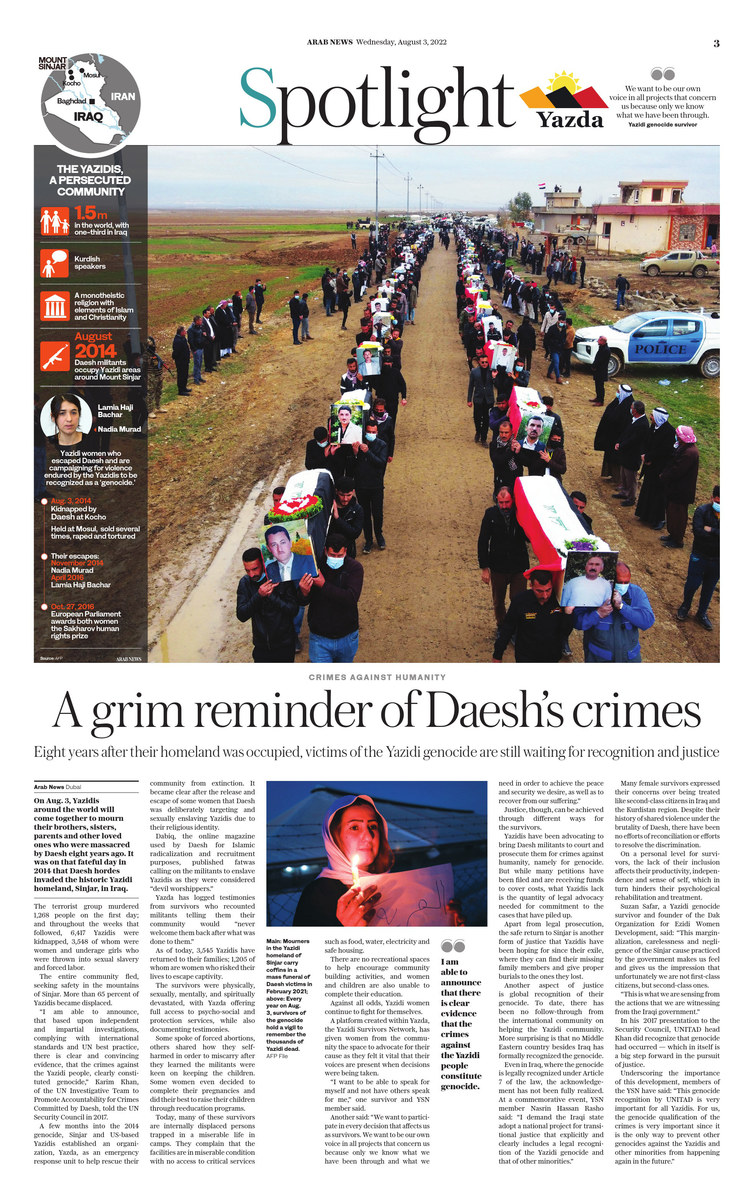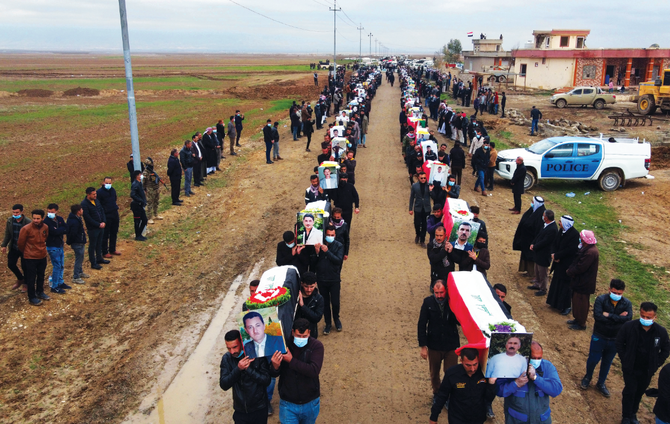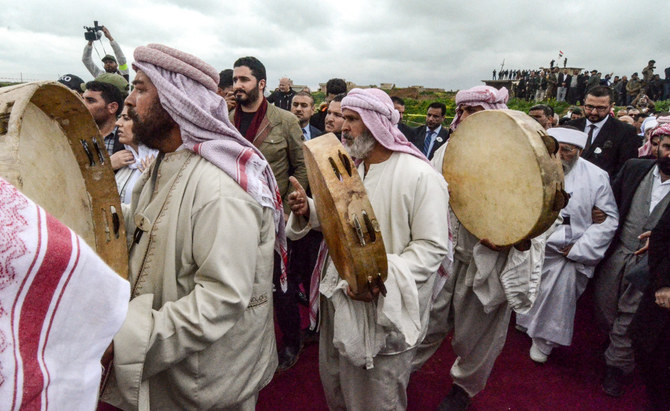DUBAI: On August 3, Yazidis around the world will come together to mourn their brothers, sisters, parents, and other loved ones who were massacred by Daesh eight years ago.
It was on that fateful day in 2014 that Daesh hordes invaded the historic Yazidi homeland, Sinjar, in Iraq. The terrorist group murdered 1,268 people on the first day; and throughout the weeks that followed, 6,417 Yazidis were kidnapped, 3,548 of whom were women and underage girls who were thrown into sexual slavery and forced labor.
The entire community fled, seeking safety in the mountains of Sinjar. More than 65 percent of Yazidis became displaced.
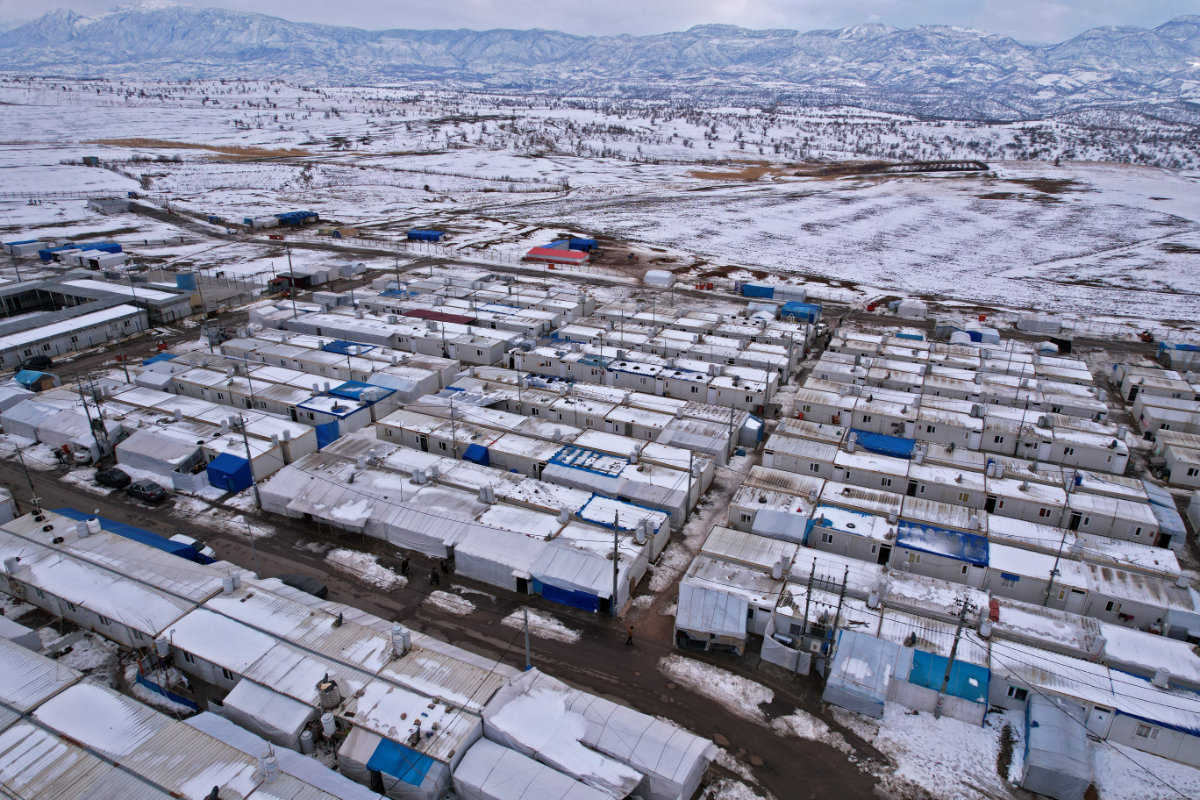
An aerial view shows a snow covered displacement camp for Yazidi people in the area of Dawudya, about 60 km north of Dohuk in Iraq's autonomous Kurdish region, on Jan. 25, 2022. (AFP)
“I am able to announce, that based upon independent and impartial investigations, complying with international standards and UN best practice, there is clear and convincing evidence, that the crimes against the Yazidi people, clearly constituted genocide,” Karim Khan, of the UN Investigative Team to Promote Accountability for Crimes Committed by Daesh, told the Security Council in 2017.
A few months into the 2014 genocide, Sinjar and US-based Yazidis established an organization, Yazda, as an emergency response unit to help rescue their community from extinction. It became clear after the release and escape of some women that Daesh was deliberately targeting and sexually enslaving Yazidis due to their religious identity.
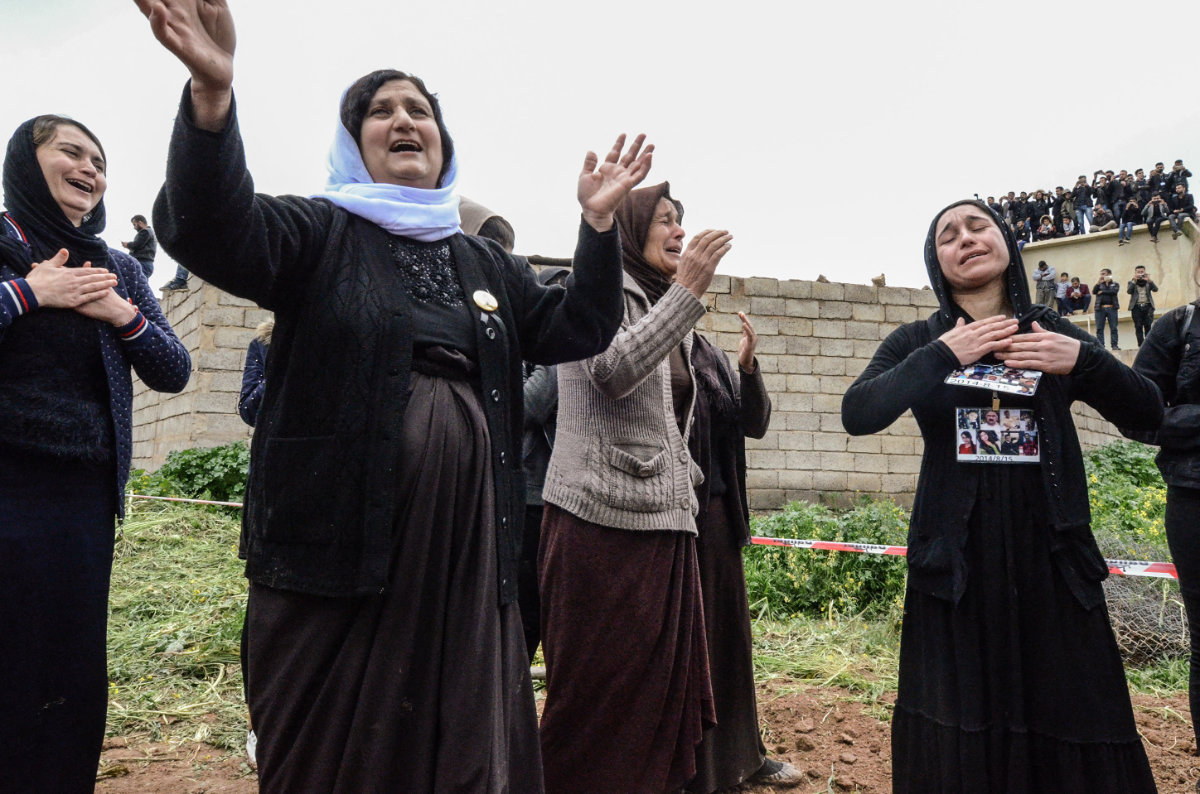
Iraqi women mourn during the exhumation of a mass-grave of hundreds of Yazidis killed by Daesh militants in the northern Iraqi village of Kojo in Sinjar district on March 15, 2019. (AFP)
Dabiq, the online magazine used by Daesh for Islamic radicalization and recruitment purposes, published fatwas calling on the militants to enslave Yazidis as they were considered “devil worshippers.”
Yazda has logged testimonies from survivors who recounted militants telling them their community would “never welcome them back after what was done to them.”
As of today, 3,545 Yazidis have returned to their families; 1,205 of whom are women who risked their lives to escape captivity.
The survivors were physically, sexually, mentally, and spiritually devastated, with Yazda offering full access to psycho-social and protection services, while also documenting testimonies.
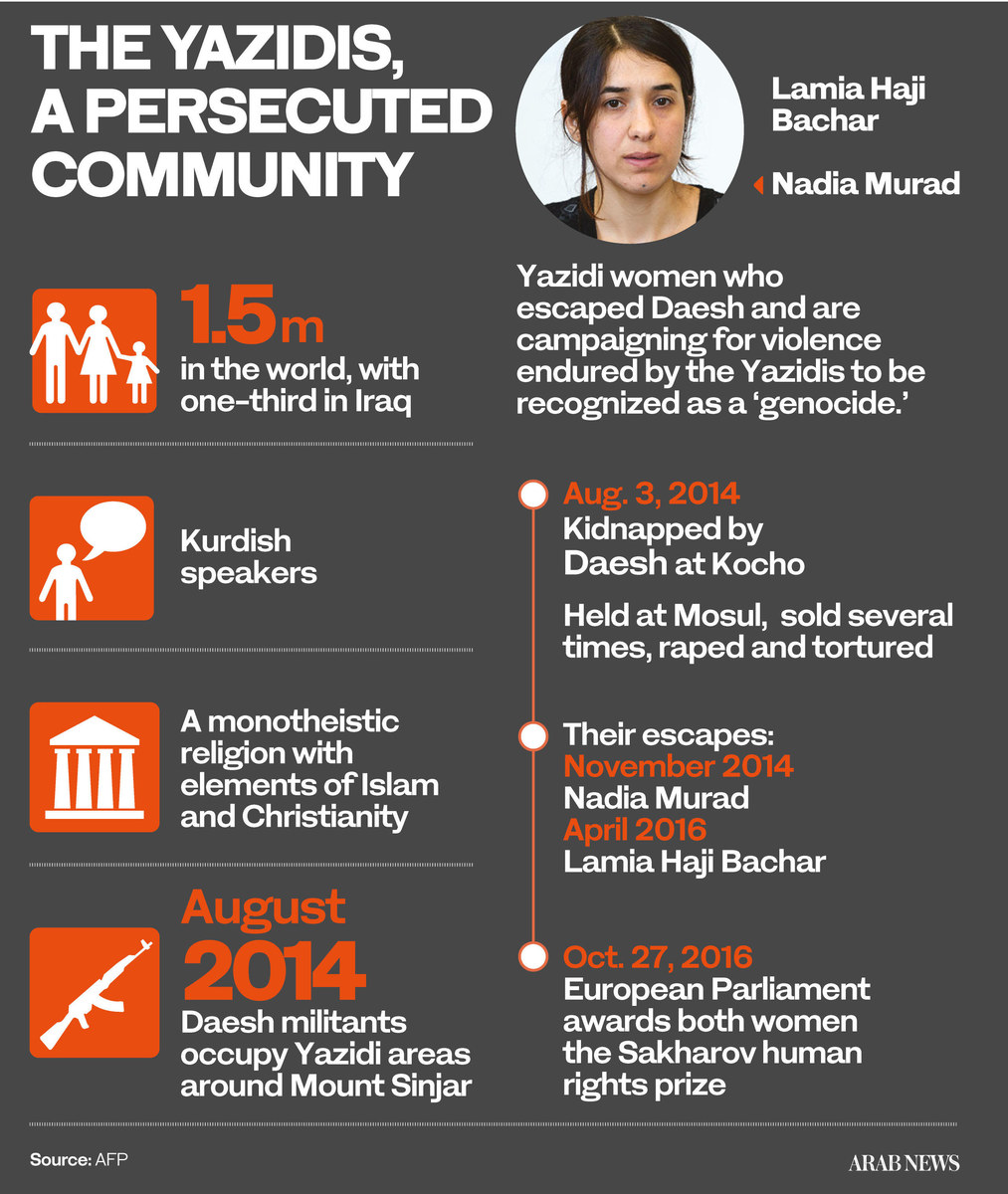
Some spoke of forced abortions, others shared how they self-harmed in order to miscarry after they learned the militants were keen on keeping the children. Some women even decided to complete their pregnancies and did their best to raise their children through re-education programs.
Today, many of these survivors are internally displaced persons trapped in a miserable life in camps. They complain that the facilities are in miserable condition with no access to critical services such as food, water, electricity and safe housing.
There are no recreational spaces to help encourage community building activities, and women and children are also unable to complete their education.
Against all odds, Yazidi women continue to fight for themselves.
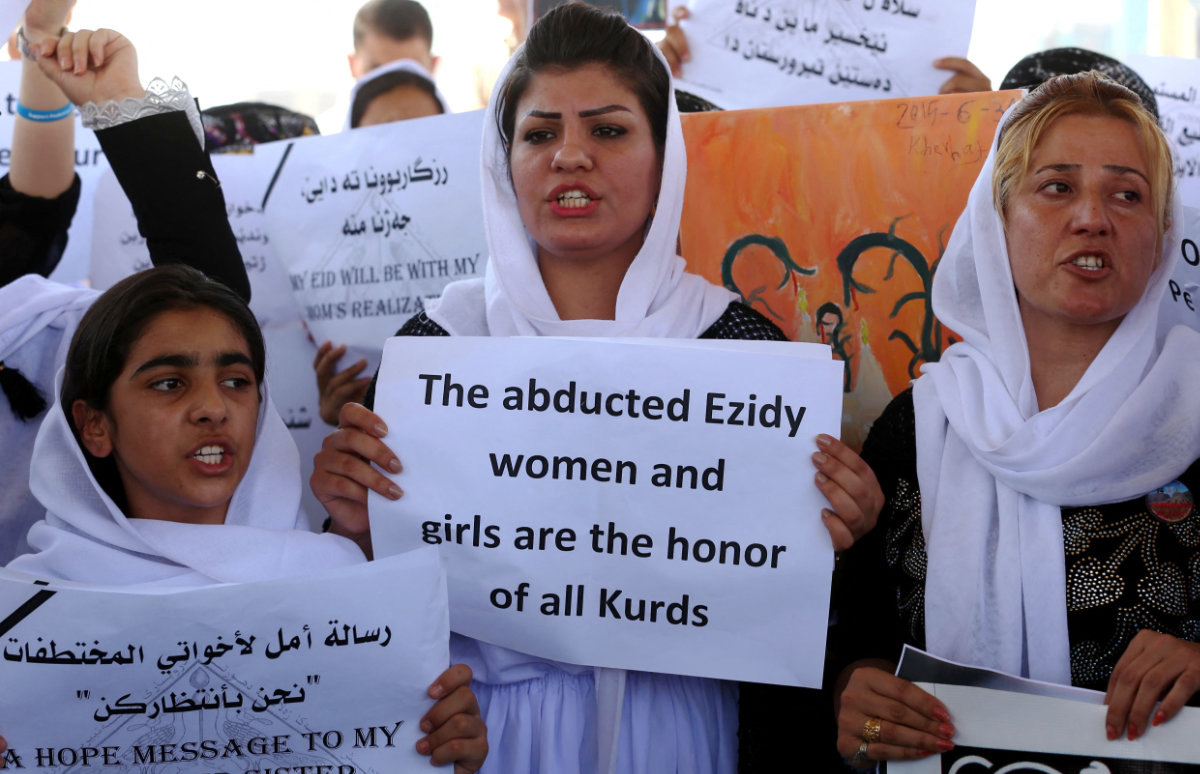
Iraqi Yazidi women protest outside the UN office in Arbil, Iraq, on Aug. 2, 2015 in support of women from their community who were kidnapped last year in the Sinjar region by Daesh jihadis. (AFP)
A platform created within Yazda, the Yazidi Survivors Network, has given women from the community the space to advocate for their cause as they felt it vital that their voices are present when decisions were being taken.
“I want to be able to speak for myself and not have others speak for me,” one survivor and YSN member said.
Another said: “We want to participate in every decision that affects us as survivors. We want to be our own voice in all projects that concern us because only we know what we have been through and what we need in order to achieve the peace and security we desire, as well as to recover from our suffering.”
Justice, though, can be achieved through different ways for the survivors.
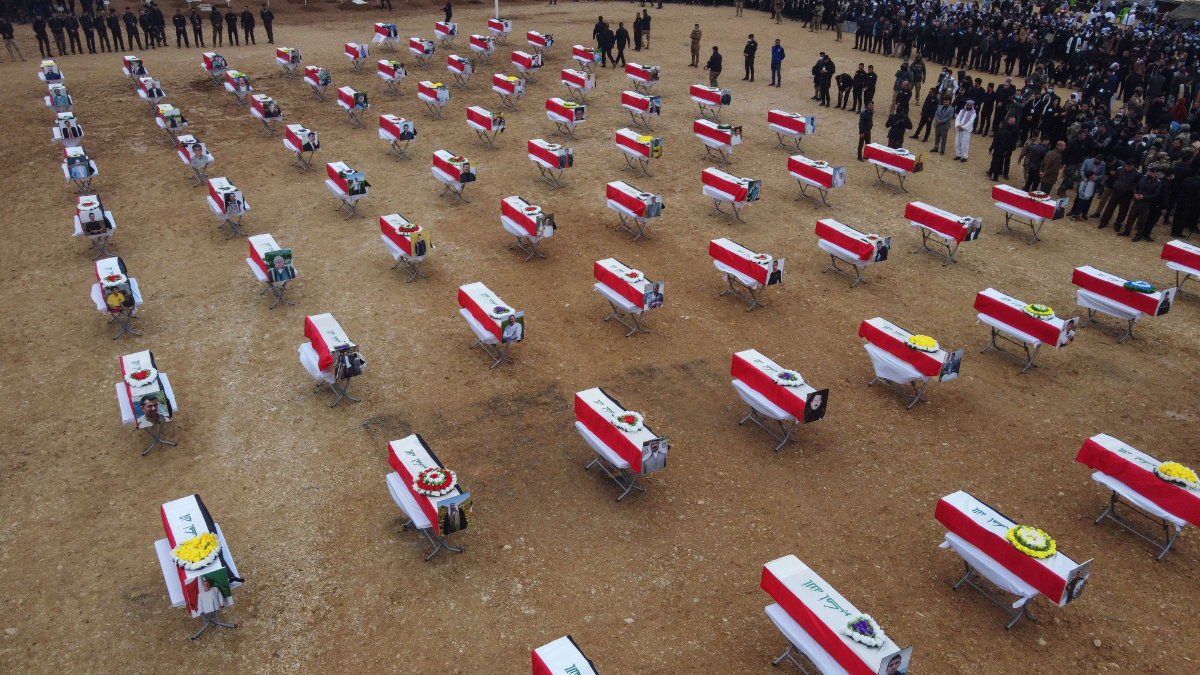
An aerial picture shows mourners gathering around coffins wrapped with the Iraqi flag during a mass funeral for Yazidi victims of Daesh militants in Sinjar district of Iraq on Feb. 6, 2021. (AFP)
Yazidis have been advocating to bring Daesh militants to court and prosecute them for crimes against humanity, namely for genocide. But while many petitions have been filed and are receiving funds to cover costs, what they lack is the quantity of legal advocacy needed for commitment to the cases that have piled up.
Apart from legal prosecution, the safe return to Sinjar is another form of justice Yazidis have been hoping for since their exile, where they can find their missing family members and give a proper burial to the ones they lost.
Another aspect of justice is global recognition of their genocide. To date, there has been no follow-through from the international community on helping the Yazidi community. More surprising is that no Middle Eastern country besides Iraq has formally recognized the genocide.
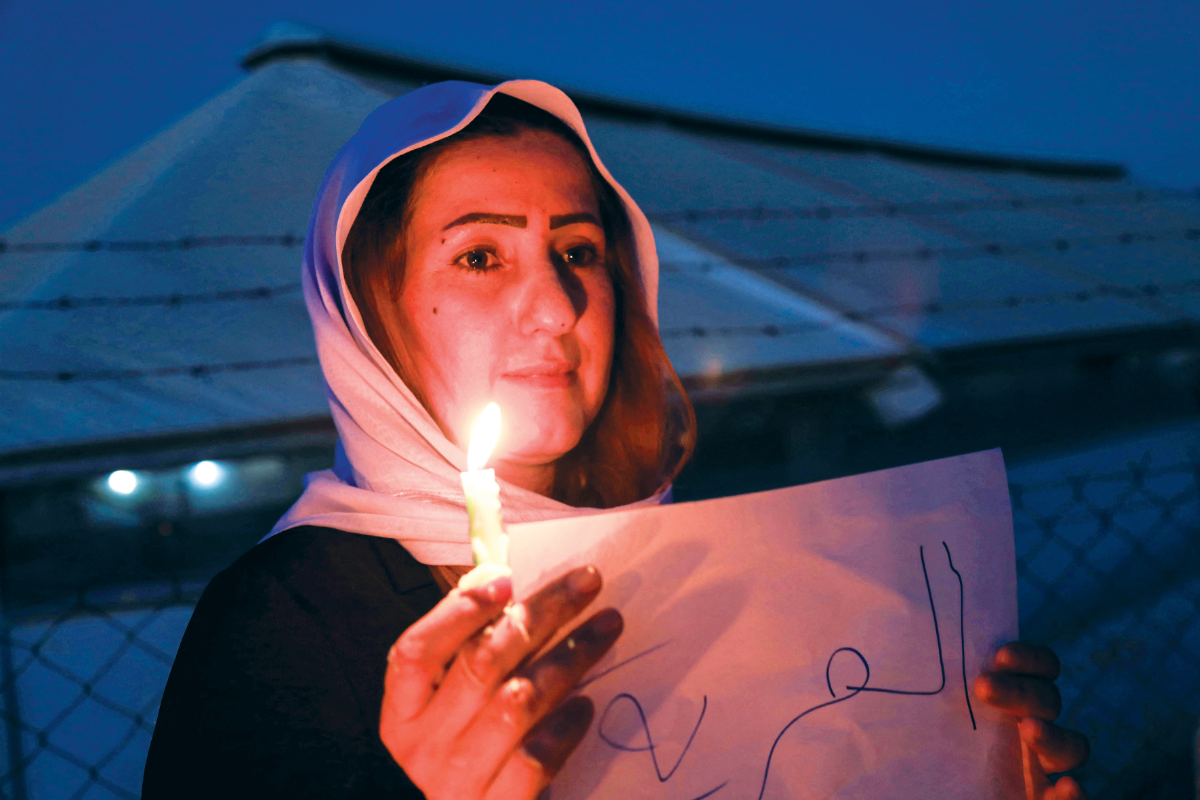
Every year on Aug. 3, survivors of the genocide hold a vigil to remember the thousands of Yazidi dead. (AFP File)
Even in Iraq, where the genocide is legally recognized under Article 7 of the law, the acknowledgement has not been fully realized. At a commemorative event, YSN member Nasrin Hassan Rasho said: “I demand the Iraqi state adopt a national project for transitional justice that explicitly and clearly includes a legal recognition of the Yazidi genocide and that of other minorities.”
Many female survivors expressed their concern on being treated like second-class citizens in Iraq and the Kurdistan region. Despite their history of shared violence under the brutality of Daesh, there have been no efforts of reconciliation or efforts to resolve the discrimination.
On a personal level for survivors, the lack of their inclusion affects their productivity, independence and sense of self, which in turn hinders their psychological rehabilitation and treatment.
Suzan Safar, a Yazidi genocide survivor and founder of the Dak Organization for Ezidi Women Development, said: “This marginalization, carelessness and negligence of the Sinjar cause practiced by the government makes us feel and gives us the impression that unfortunately we are not first-class citizens, but second-class ones.
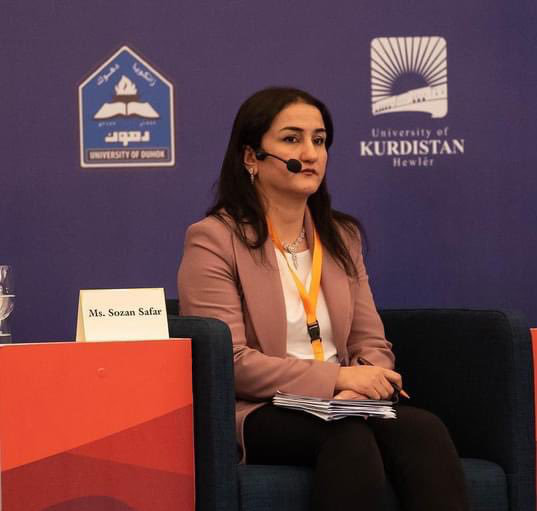
Suzan Safar participating in a forum on women empowerment forum in Arbil. (AFP file photo)
“This is what we are sensing from the actions that we are witnessing from the Iraqi government.”
In his 2017 presentation to the Security Council, UNITAD head Khan did recognize that genocide had occurred — which in itself is a big step forward in the pursuit of justice.
Underscoring the importance of this development, members of the YSN have said: “This genocide recognition by UNITAD is very important for all Yazidis. For us, the genocide qualification of the crimes is very important since it is the only way to prevent other genocides against the Yazidis and other minorities from happening again in the future.”
